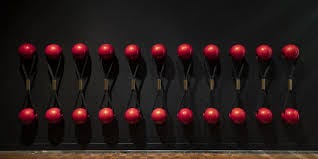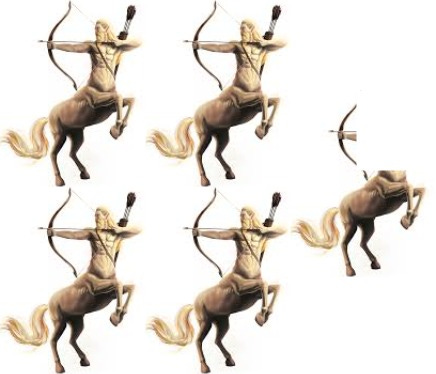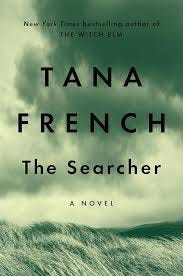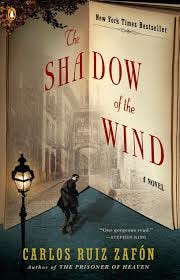Webster’s dictionary defines a “cliché” as1:
I’m here to argue that clichés, while dangerous territory for a writer, are overused for a reason and that talented authors, like Lauren Beukes, can wield them to a great effect. Broken Monsters is about, well, broken monsters. A hackneyed writer could cobble together something to the effect of “In the end, we were all broken monsters, get it?!” In Beukes hands, it’s a subtle, nuanced thread that weaves through a dark and thrilling tale.
Also, half a boy gets glued to half a deer, and you don’t see that every day.
So you’ve read this positive review and you want to read the book yourself? Great! You can get it here.
Spoiler-Free Summary
Broken Monsters follows 5 Detroit residents:
Gabi Versado - Homicide detective and single mother to Layla. Gabi has to balance the grimness of her job, the tenderness of her parenting, and the sloppiness of her personal life.
Layla Versado - Nerdy high schooler and daughter of Gabi’s, who along with her (only) friend Cas is becoming increasingly risky with their online trolling of pedophiles
Clayton Broom - Down-on-his-luck artist who feels the urge to create something greater than the sum of its parts, and to find an audience for that something.
TK - a homeless man who, despite his circumstances, finds himself as the unofficial “mayor” of Detroit’s unhoused population
Jonno - Writer/reporter scraping by writing fluff pieces, but looking for his big break into serious, meaningful reporting in a world that wants its information bite-sized
These characters are all, whether they want to or not, pulled together by the discovery of a uniquely disturbing murder victim in their city, and man is that only the beginning.
The Good
Oh, just about everything. I’ll try to section this out so I don’t ramble for much too long:
Plot: The story is thrilling with a touch of horror. I wouldn’t quite call it a mystery, as you’ll find out in the first quarter of the book the killers’ identity. Beukes very deftly weaves between viewpoints and plays with time just a little bit2. It’s very well done how, even though you can more or less guess the broad strokes of how it will all go, you’ll still want to keep turning pages. That’s mainly because the book is really about its characters, which we’ll talk about in a moment. One more point on the plot: I really appreciated how the plot toyed with supernatural elements, but then fully left it in the reader’s control on how to interpret them. Do you want to believe something beyond our reality is going on here? That’s reasonable. Do you want to buy that there’s a logical explanation for it all?3 Beukes will give you the breadcrumbs to find your way home.
Characters: Gabi, Layla, Clayton, Jonno, Cas all feel real, unique, important, and full.4 Each has their own voice, idiosyncrasies, desires, fears, and what’s more is how they all play off of one another when the characters do bump in to one another. It sometimes feels as though Beukes wrote several short stories about these wonderful characters, and then cut each chapter out, shuffled them all up, and arranged them in the most compelling way.
Setting: I almost combined this subsection with the last, as Detroit is absolutely a character in this novel.5 This is today’s Detroit, through and through. The tragedy of the economic downturn and abandoned structures, the grit of the residents pushing through it all, the flashes of hope for a revitalization. The novel as a whole firmly places itself in the modern day, with mentions to Kwame Kilpatrick, Renisha McBride, Banksy, Tiff Massey, and more. You’ll feel the city around the characters.
Writing: The writing is deceptively easy to glide through and devilishly precise. You can try to read one chapter, but you won’t. It will grab you and pull you through five chapters before you know it. There’s no flashy vocabulary or excessively obscure references, and yet, you’ll find passages here and there that will make you stop and reflect, gasp, or very often, laugh. On that last point - one of the most impressive things Beukes has done here, in my opinion, is to change her sense of humor with her characters, not only in their dialog but in their observations. We laugh at Jonno’s blindness to the absurdity of his ambition6, Layla’s perception of her Mom, Gabi’s resistance to the vulgarities of her reality - but all in different ways and with different tones. That commitment to character has to be daunting, but it pays off a thousand times over. In one scene you’ll be laughing at Gabi’s attempts to understand her much-too-online daughter’s technological prowess, and a few pages later, laughing at Layla’s frustration with the very same.
The Bad
There’s really only one thing I didn’t love about Broken Monsters, and that is TK. TK, if you’ve forgotten from a few paragraphs ago, is a homeless man who has become an unofficial community leader for the underprivileged of Detroit. There’s a lot of promise in a character like that in a book like this. How does the morality equation shift for someone in that position? What’s his relationship with authority figures, and does he dehumanize them similarly to how they dehumanize himself and those he loves? How does a powerless person react to being put in a position of power?
Unfortunately, TK doesn’t rise to any of these challenges, and in fact is largely forgotten for much of the novel. He’s mostly inconsequential to the events of the book, and the story would be that much tighter and impactful without his superfluous inclusion. Plot-wise, he serves a purpose in the final scenes, but only in as much as Beuke’s needs a warm body to move things along - substitute any other minor character in the novel in TK’s place, and nothing changes.
Further, he doesn’t have much of an arc even in his own development. I once read that a hallmark of a good character/story is that if you read only the first chapter and the last chapter, you shouldn’t have any earthly clue what could possibly connect them. The other main characters fit this bill, as Gabi, Layla, Jonno, Clayton, and even Cas are wholly different people from one end of the book to the other. Not so with TK, who wanders out of the story just as aimlessly as he wandered in, with not much to show for having attended the party.
Memorable Quotes
“So drive, Layla. I love you.” It’s a heavy load for those three words. Because what she means is I’m sorry. I’m sorry I was busy and I’m sorry I have to go inside and I might not see you again and I didn’t tell you enough that I’m proud of you, even though you do stupid shit, because it comes from the right place and that’s rare and precious, and you’ll grow up to be a good woman, and you won’t make the same dumb mistakes I did, you’ll make your own, but hopefully only to get you on course, and the world is greater and richer with you in it, sugarbean.
Today’s lesson: How to use a run-on sentence effectively.
Hell isn’t other people, it’s other parents. And parents with money are another species, even though on the surface they have so much in common.
Preach.
In the end, forgiveness is like letting go of a rabid cougar you had by the tail.
Because it’s a huge relief, or because the cougar is now free to eat you?
It reminds him of his mother, who was a nurse in an obstetrics ward. She hated inserting catheters, so she did it as quickly and efficiently as she could, which meant she got called to do all the catheters.
As any one who has worked in the medical field will tell you, this is exactly how it works.
Anyone can find they’ve been standing on the trapdoor when they thought they were the spotlight attraction.
Oof.
Clayton is trying to pay a bill with cash he has precious little of: “It’s nothing. But people believe in it. Money makes the rules. This is what things cost. This is what you have, where you are, what you are, what you can be. Money is a dream that has made itself definitive”
That last line is disturbingly true.
Other Thoughts
As stated in the beginning, this book could have so very easily plunged head first into cliché. The hardened detective with a heart of gold. The reporter looking for meaning in his stories and his own life. How all involved are “broken monsters”, ba dum cha. It’s all right there.
Lauren Beukes is too good of a writer for that. Her work is forceful and thrilling, but she handles her characters with care and precision. It’s an enviable talent.
Clichés are derided for good reason, but let’s remember that they are used so often because they are effective, when used properly. I think the key is to take a note from them without leaning on them to hold the story afloat. Broken Monsters is a great example of this. Beukes has surgically extracted the compelling bits of these tropes, and then used them just as a base note to build her symphony upon.
I was planning on providing some examples of the “broken monster” parallels throughout, but I keep deleting them for fear of providing too many spoilers. If you want, you can always leave a comment or drop me a line to hear more about them.
Who Should Read This?
Rating
This was nearly my second 5/5, but thanks to TK’s useless character, I had to knock off .25 to leave Broken Monsters with 4.75/5 centaurs.
Next Up
It’s a toss up based on which of these I finish first! Let me know if you have a preference.
Until next week, don’t let your dreams be memes.
See what I did there? By opening the post with a cliché? Clever as a fox, I am. Ooh, there’s another one!
For example, showing the same scene from a few different perspectives, one after the other.
My preference.
Yes, I left out TK in that list - we’ll get to him in the next section.
I’ll get to it in a moment, but it too is a “broken monster”
Until that humor becomes…well…read the book.












I better start reading! I’ll never catch up with all these interesting books!